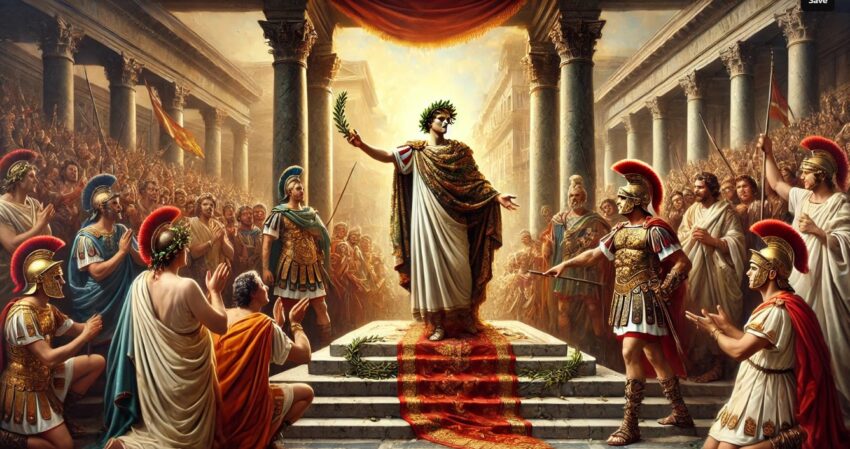Former Allies Turn: Cassius and Brutus distance themselves from Caesar
The early stages of the turn against Julius Caesar by his former allies, most notably Gaius Cassius Longinus and Marcus Junius Brutus, are well-documented by historians such as Suetonius, Plutarch, and Appian. These historians recount how both men, once close to Caesar and beneficiaries of his political and military success, began to distance themselves as his power grew more absolute and his intentions less clear.
Cassius, a seasoned military commander who had served with distinction under Caesar during the Gallic Wars, was one of the first to become disillusioned. As Caesar’s power grew, Cassius’s concerns about the erosion of republican ideals intensified. Ancient sources suggest that Cassius’s personal ambitions were thwarted by Caesar’s dominance, and he began to view Caesar not just as a political rival but as a threat to the Republic itself. Plutarch notes that Cassius’s growing resentment was fueled by what he perceived as Caesar’s disregard for the traditional political processes and the Senate’s authority. Cassius’s discontent transformed into outright opposition as he feared that Caesar’s continued rule would spell the end of the Senate’s influence and the republican form of government.
Brutus, on the other hand, had a more complex relationship with Caesar. A relative of Caesar by marriage and the son of Caesar’s mistress, Servilia, Brutus had been treated with exceptional favor by Caesar. Caesar had even spared Brutus’s life after the Battle of Pharsalus, choosing to pardon him rather than punish him for siding with Pompey. This personal connection made Brutus’s eventual betrayal all the more poignant. Despite his ties to Caesar, Brutus was deeply committed to the ideals of the Republic, and as Caesar’s power grew, so did his internal conflict. Plutarch writes extensively about Brutus’s philosophical leanings, influenced by Stoicism, which led him to prioritize the Republic’s survival over personal loyalty to Caesar. According to Suetonius, Brutus’s decision to join the conspiracy was not taken lightly; it was a gradual process spurred by a growing belief that Caesar’s rule was incompatible with the freedom of the Roman people.
Historians agree that the turning point for both Cassius and Brutus came when Caesar was declared dictator perpetuo (dictator for life) in February 44 BC. This act crystallized their fears that Caesar intended to dismantle the Republic entirely. Cassius, already harboring deep resentment, saw this as confirmation of Caesar’s tyrannical ambitions, while Brutus was finally convinced that the Republic could only be saved through drastic measures. The decision to turn against Caesar was thus rooted in a mixture of personal grievances, political ideals, and the fear that their beloved Republic was on the brink of destruction.
The shift in loyalty from these former allies was not merely a personal betrayal but a reflection of the broader disillusionment among Rome’s elite. Appian notes that this sentiment was shared by many senators who had initially supported Caesar but became increasingly uncomfortable with his consolidation of power. The defection of Cassius and Brutus from Caesar’s camp marked the beginning of the end for Caesar’s unchecked rule. Their decision to distance themselves set in motion the conspiracy that would ultimately lead to Caesar’s assassination, a move they believed was necessary to preserve the Republic.
 |
 |
 |


